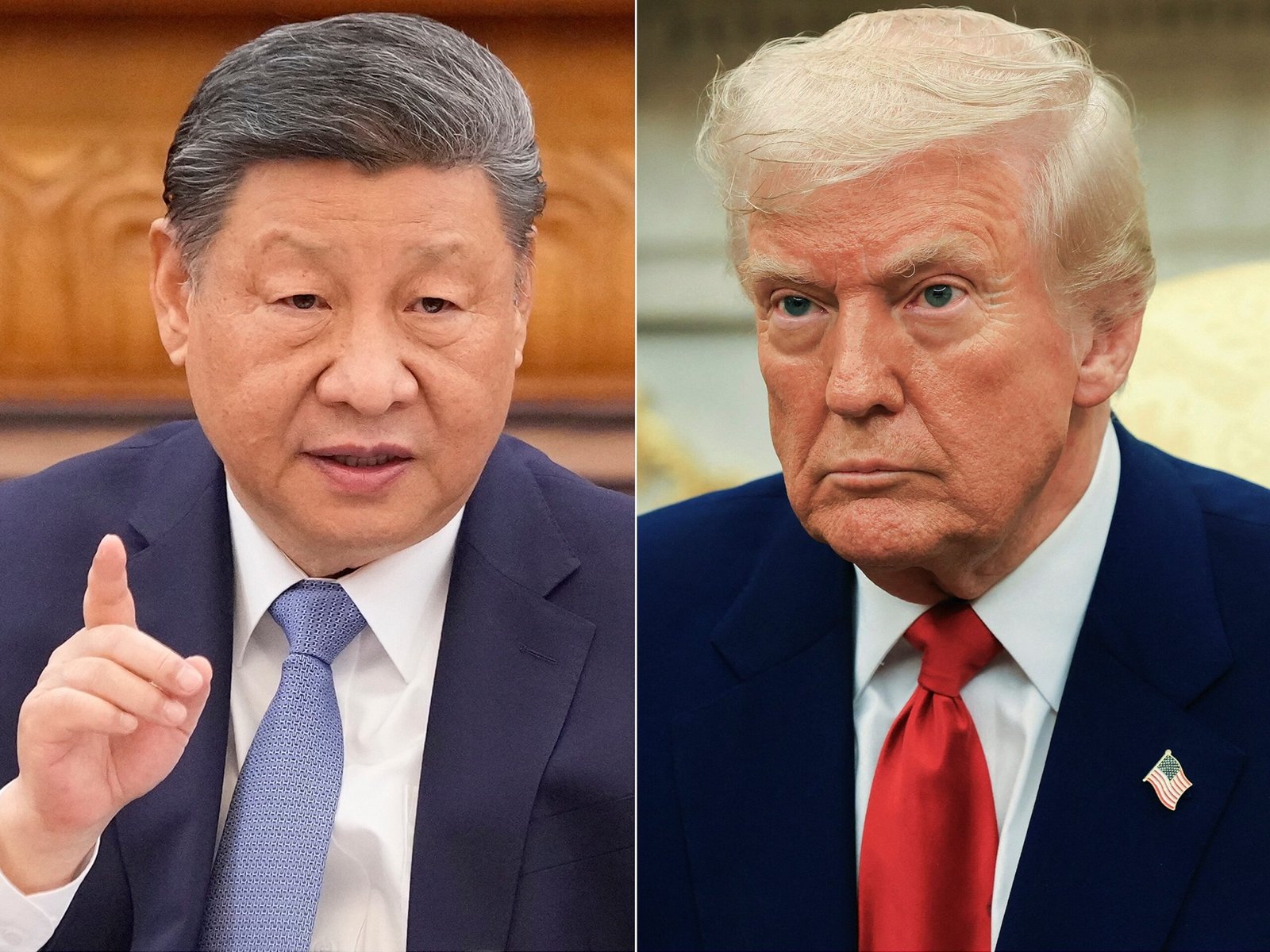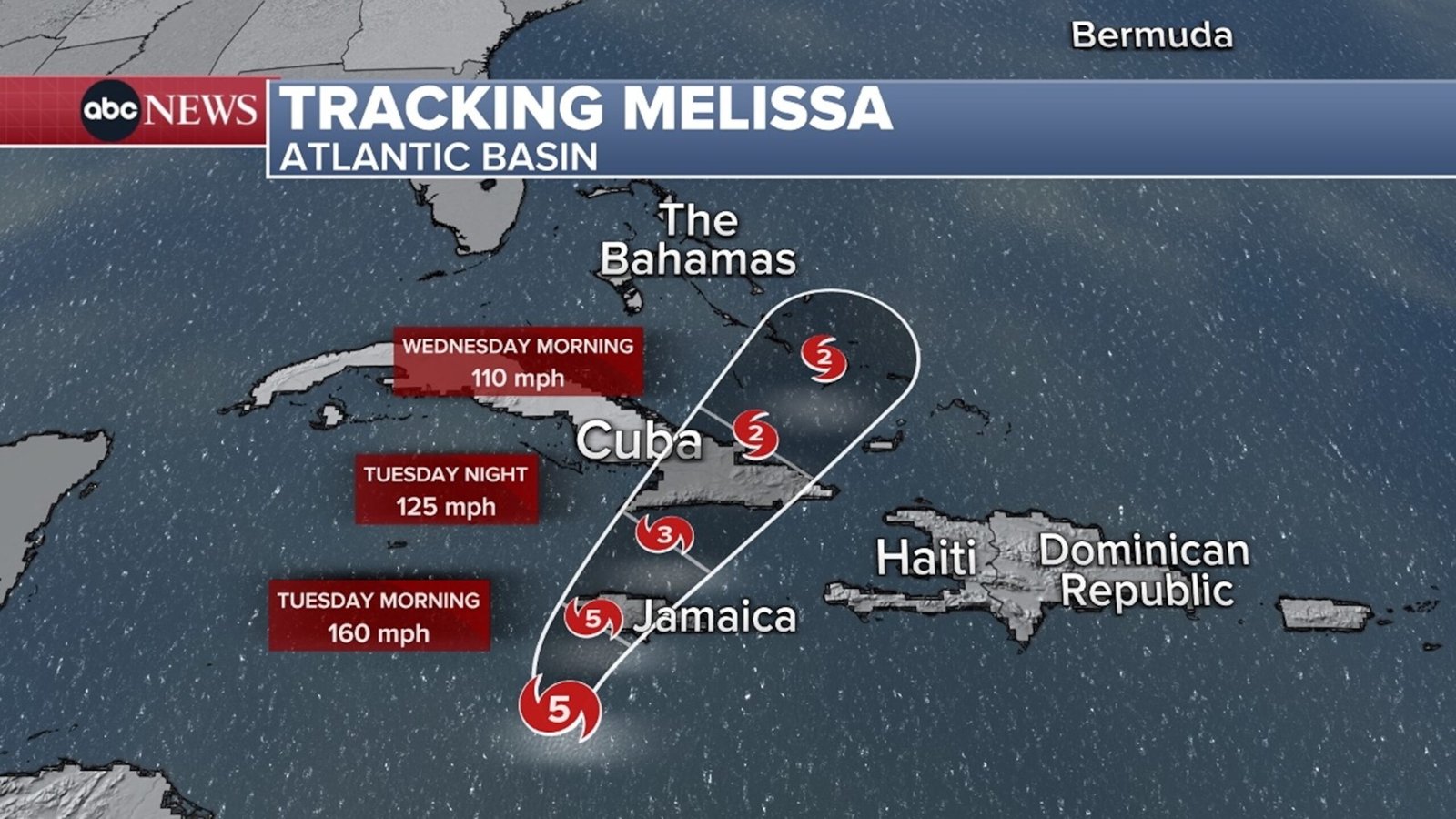Xi Jinping is playing hardball.
The Chinese president wants to show his people that the country can resist the economic pain of the tariffs of President Donald Trump and resist what Beijing is calling the “harassment” of the United States, according to experts.
Trump’s commercial war also feeds on the strategy in which Xi has been working for years: to depend less on the United States.
This breakdown in commerce is “exactly what Beijing has been preparing,” said Jude Blanchette, director of the Rand China Research Center. “Beijing is not looking for negotiation.”
The superpowers of the world are dedicated to a risky chicken game, experts told ABC News. The question is who flashes first.

The president of China, Xi Jinping, in Beijing, on March 28, 2025 and President Donald Trump, in Washington, on April 7, 2025.
Getty Images/Reuters
“At this time, XI seems to be calculating that China can resist damage and that, ultimately, it is the United States who will flash first,” said Neil Thomas, a member of Chinese politics at the analysis center of the Institute of Policy of the Asia Society for the analysis of China for the analysis of China
XI’s opinion is that countries will want to do business with the US.
“Both Washington and Beijing think they have the strongest hand for different reasons. The Trump administration sees China as an export dependent, so they believe it is a significant leverage to make the Chinese bend to bend,” Blanchette said. “On the other hand, Beijing sees the United States as getting economically weak under Trump and distances themselves from their allies.”
While Trump at his cabinet meeting on Thursday called XI a “friend” and said he would love to reach an agreement with China, the calculation is not so simple for XI. If Xi moves away from the phone call without an agreement, runs the risk of losing his face.
“For XI, there is a great risk of looking weak in its treatment with the United States, it runs the risk of being humiliated or having anything to show for your commitment to Trump,” said Thomas. “Tariffs will be economically painful, but Xi also sees this as an opportunity to turn China into a healthier situation by reducing the dependence of the United States”
There are also other levers that China can throw to retaliate. Experts say that Beijing could prohibit more companies in China and limit exports of critical materials, such as rare earth minerals.
China “has not been close to the maximum he could do with his rare land exports, considering that he is such a dominant player in the industry,” Thomas said.
China could “close huge segments of high -tech supply chains” by prohibiting rare earth minerals, said Thomas, calling him “a nuclear option that would severely damage the US economy but European and Asian economies.”
Beijing has also said that he will restrict Hollywood movies in China. While it is not a “significant” retaliation, Thomas said that “it feeds directly on the broader political agenda of Xi Jinping to reduce foreign influence on Chinese society.”
But Scott Kenney, principal advisor and president of Business Administration and Chinese economy at the Center for Strategic and International Studies, argued that Beijing believes that Trump has already flicked by stopping reciprocal tariffs for 90 days.
“I think the Chinese will read this as the weakness of President Trump and wait,” he said.






